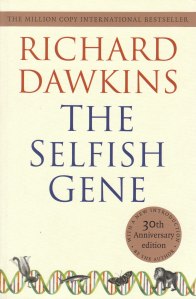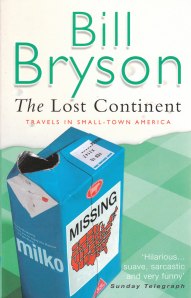Author: Vladimir Nabokov
Publisher: Penguin
Dates Published: 1955
Pages: 336
‘Lolita, light of my life, fire of my loins. My sin, my soul.’
Poet and pervert, Humbert Humbert becomes obsessed by twelve-year-old Lolita and seeks to possess her, first carnally and then artistically, out of love, ‘to fix once for all the perilous magic of nymphets’. This seduction is one of many dimensions in Nabokov’s dizzying masterpiece, which is suffused with a savage humour and rich, elaborate verbal textures.
‘Lolita’ opens with a fictitious foreword discussing the recently published memoirs of murderer and paedophile Humbert Humbert, and continues with the memoirs themselves. Set during 1950’s America, ‘Lolita’ is the self written biography of Humbert, an immigrant to the United States who eventually seduces, kidnaps and sexually molests his landlady’s daughter (who he variously refers to as Dolores, Dolly, Lolita, Lola, Lo, L). Despite the horrid nature of the plot, ‘Lolita’ has reached a cult status and has often been described as a masterpiece of English literature (which is very exceptional, considering English was Nabokov’s second or third language).
‘Lolita’ is a brilliant excercise in the nature of point of view and truth. Events are manipulated, bent and exaggerated (even Humbert himself admits the way his memories colour events differently to how they might have happened). The reader is constantly aware that the memoir is trying to earn out sympathy for Humbert’s hideous actions and the bland truth will always be relatively unknown. Nabokov expertly and delightfully navigates the precarious line between truth and lies.
Humbert is a superbly written character and a credit to Nabokov’s skills as an author – that he could present such a wretch of a man in an entertaining and semi-sympathetic form is incredible. I found Humbert was far more interesting in scenes with adults; which really highlighted the darkly humorous sides to his murderous thoughts and unstable character. Humbert’s inadequacies in adult life are truly entertaining (particularly the scenes with older women). One of the aspects I most enjoyed about Humbert was his apparent hypocrisy and the moments of clarity that would strike him when he would lament his sexual abuse of Lolita, before suddenly twisting back to imagining ‘nymphets’ in his power.
Lolita herself, once she had been acquired through nefarious means by Humbert, was a delightful surprise. Unlike the swooning, helpless child Humbert had imagined, Lolita is forthright and blunt to the matter of callousness; a refreshing contrast to Humbert’s penchant for oozing long, poetic barrages of truth-dodging dialogue. The question of Lolita’s innocence (was she somehow responsible for what happened?) is tantalising, and if left to Humbert’s recount would surely point towards her ‘nymphet’ qualities as the answer. However Lolita is a strange, yet frighteningly normal child; she is neither perfectly innocent or darkly depraved.
As for the paedophilia itself – it is bearable mainly because of Humbert’s efforts to dress his abuse up as epic romance and poetry; the actuality is not very often described plainly. However, the book isn’t without moments that cause grimacing in disgust (for instance when Lolita has a fever and Humbert performs cunnilingus on her before taking her to the hospital). Humbert’s effort to humanise his actions extends to his sexual abuse – he tries to convince his audience that he is not a manipulative predator, but a love struck, lonely soul under the fierce spell of the powerful ‘nymphet’. He often tries to rationalise his paedophilic urges by invoking past civilisations and famous poets who had sexual encounters with young children, and by ascribing the most attractive little girls with the title ‘nymphets’ (Now I wish to introduce the following idea. Between the age limits of nine and fourteen there occur maidens who, to certain travelers, twice or many times older than they, reveal their true nature which is not human, but nymphic (that is, demoniac); and these chosen creatures I propose to designate as “nymphets.” ).
The language is highly descriptive in a sensual way – surroundings, weather and locations are described with lavish, poetic vigour in Humbert’s long-winded manor. The vastness of America is also captured as Humbert describes the hundreds of locations he and Lolita visit in their long, sordid road trips.
Unfortunately, Lolita was a quarter too long for me. This may seem preposterous, but I felt as if the plot was dragging (particularly in the first third) and Humbert’s penchant for over description with almost hallucinogenic vigor can be daunting.
Humbert’s constant use of French is also very irritating (which Lolita thankfully voiced at one point in the novel). Random sentences and sometimes even paragraphs are written in French, which (being Australian) I certainly can’t understand but didn’t feel like dragging myself to the internet to translate. Though I see the literary and character point (Humbert is pretentious enough to constantly use a foreign ‘fancier’ language in an English speaking country and to his English reading audience), this still grated on me.
The afterward by Craig Raine was mediocre at best and mainly focused on deconstructing the nature of the relationship between Humbert and Lolita. I would have preferred some factual information about the initial receival of the book. Nabokov also writes an entertaining afterward titled ‘On A Book Entitled Lolita’ where he describes his frustration in finding an English or American publisher and his enterpretation of the ‘morals’ inside ‘Lolita’.
‘Lolita’ is an incredible novel and a vastly important to the nature of modern fiction; however some audiences will not be able to go beyond Humbert’s methods of description or overlook the actuality of the tale. Despite this, ‘Lolita’ is a deeply entertaining ride through the mind of an articulate, semi-intelligent predator and the second half of the novel had me turning the pages hurriedly, wondering what would become of poor Lolita.
♥♥♥½ – 3½/5




hmm . . . interesting.
Pingback: Speak, Memory « The Written Word
i’ve seen Kubrik’s film and my brother is actually reading this novel at the moment – i’ll have to give it a go after he’s finished with it. i read the differences between the two are quite substantial, especially with Humbert’s past life and the origins of his obsession with nymphets. the effect the twisted narrative has on the story seems interesting, as you point out.
I haven’t seen the film yet, but I’d really like to as I’m a fan of Kubrik. I heard that one of the main reasons the film was so different to the book was that Kubrik suffered heavily with the sensors, to the point where he later said that if he had known their limitations beforehand he wouldn’t have attempted to make it.
Correct me if I’m wrong, but apparently in the movie its presented more as a mutual and scandalous love affair?
Also, I’ve seen some pictures of Lolita in the movie. She is truly beautiful, on the verge of womanhood. One of the reasons Humbert was so infatuated with her in the book is that she is distinctly pretty, but child like. He often laments the short amount of time before she hits puberty. I find this an interesting change on Kubrik’s part.
Pingback: Lolita, nymphs, and could you please not make me feel like a fucking pervert « Intimate thoughts, in the open
Humbert is not a Pedophile as often mentioned.
Pedophiles are attracted to Prepubescent children.
He would be classed as a Hebephile. ( attracted to pubescent)
Hello everyone, it’s my first go to see at this website, and post is in fact fruitful designed for me, keep up
posting these articles or reviews.